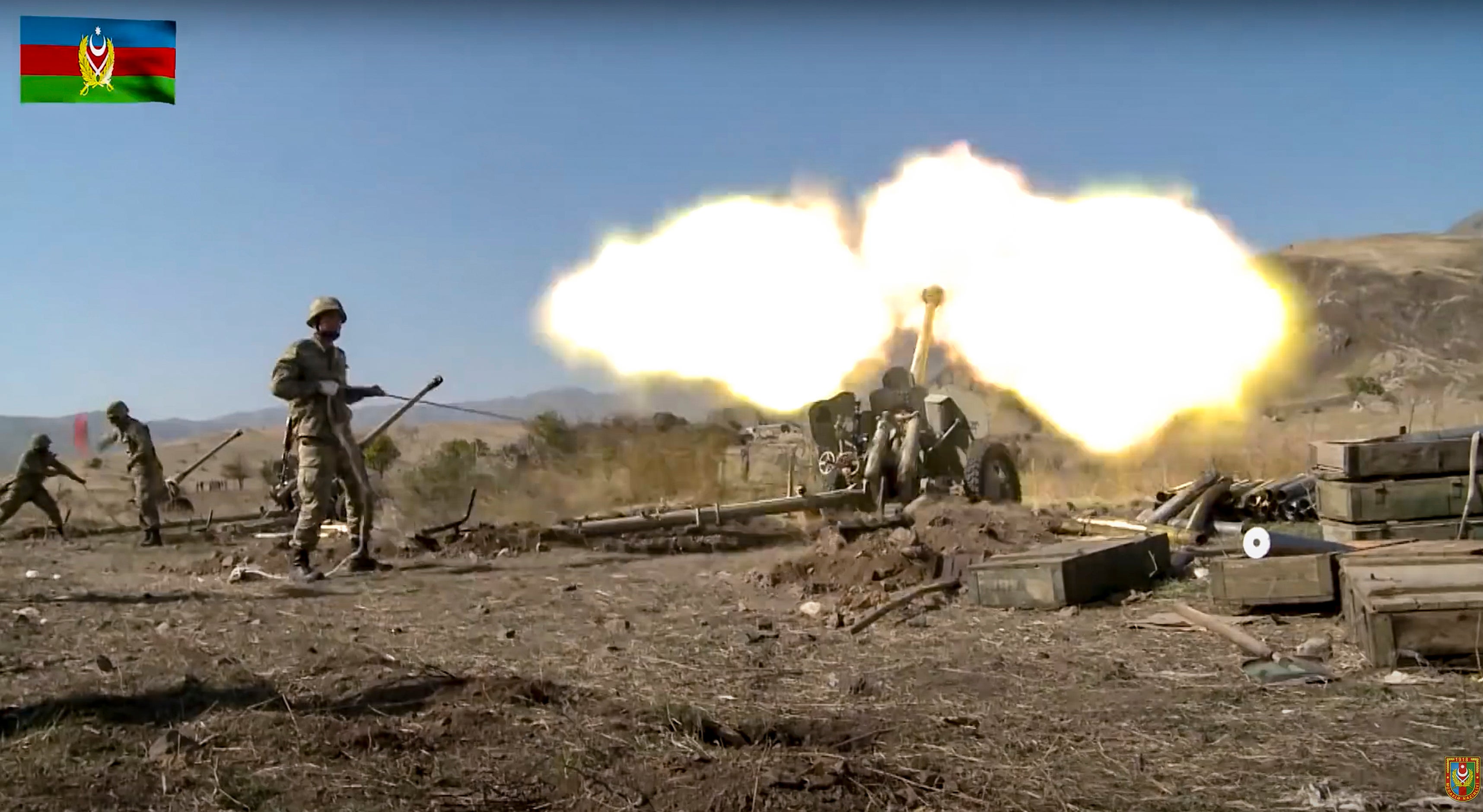Nagorno-Karabakh fighting continues despite truce efforts
Armenia and Azerbaijan have reported more fighting over the separatist territory of Nagorno-Karabakh, where clashes have continued for over three weeks despite two attempts at establishing a cease-fire

Armenia and Azerbaijan reported more fighting on Tuesday over the separatist territory of Nagorno-Karabakh where clashes have continued for over three weeks despite two attempts at establishing a cease-fire.
Azerbaijan's Defense Ministry said the hostilities carried on overnight and accused Armenian forces of shelling the Terter and the Agdam regions of Azerbaijan in the morning.
Armenian Defense Ministry spokeswoman Shushan Stepanian reported “intensive fierce battles” on Tuesday morning in the southern areas of the conflict zone, and alleged that Azerbaijani forces were using aviation and artillery in the northern sector.
The two countries announced a cease-fire on Saturday in a bid to halt the fighting that has killed hundreds since Sept. 27, when clashes resumed in the worst escalation of a decades-old conflict. The agreement — just like a cease-fire deal brokered by Russia a week earlier — was almost immediately challenged by mutual claims of violations and the fighting resumed unabated.
Nagorno-Karabakh lies within Azerbaijan but has been under the control of ethnic Armenian forces backed by Armenia since a war there ended in 1994. By then, Armenian forces not only held Nagorno-Karabakh itself but also captured substantial areas outside the territory’s borders.
According to Nagorno-Karabakh officials, 773 of their troops have been killed since Sept. 27, along with over 30 civilians. Azerbaijan hasn’t disclosed its military losses, but says 61 civilians have died so far and 282 have been wounded.
The deadly flighting prompted calls for cessation of hostilities from around the globe and raised concerns of a wider conflict involving Turkey, which has publicly supported Azerbaijan, and Russia, which has a security pact with Armenia.
On Oct. 9, Moscow hosted the foreign ministers of Armenia and Azerbaijan. After more than 10 hours of talks, they announced a cease-fire deal, which was violated minutes after it took force.
The new truce announced on Saturday followed Russian Foreign Minister Sergey Lavrov’s calls with his counterparts from Armenia and Azerbaijan, in which he strongly urged them to abide by the Moscow deal. Despite the agreement, both sides have reported new attacks.
The Armenian and Azerbaijani foreign ministers are scheduled to meet with U.S. Secretary of State Mike Pompeo in Washington on Friday. Last week Pompeo said Washington was making diplomatic efforts to help achieve a sustainable settlement to the conflict and called on both countries to “implement their agreed-upon commitments to a cease-fire."
Russia, the U.S. and France co-chair the so-called Minsk Group, set up by the Organization for Security and Cooperation in Europe in the 1990s to mediate the conflict.
—
Associated Press writers Daria Litvinova in Moscow and Aida Sultanova in London contributed to this report.
Bookmark popover
Removed from bookmarks